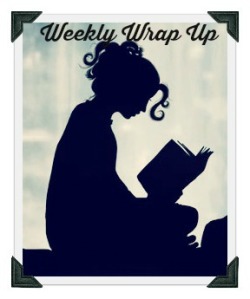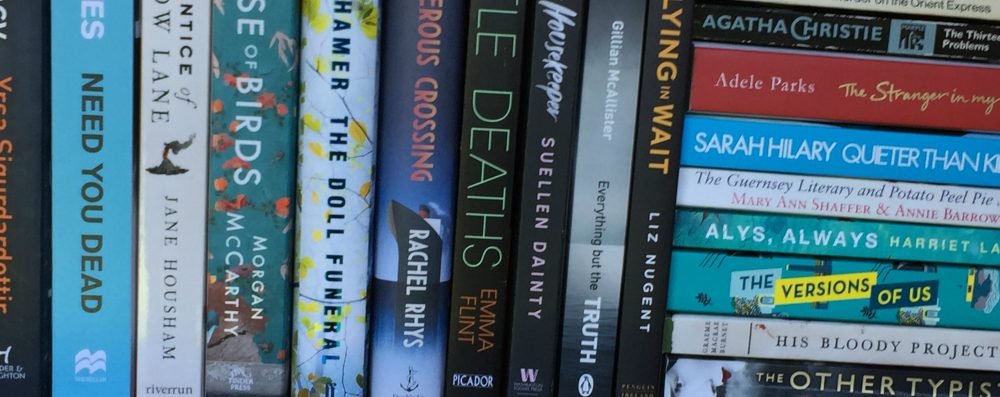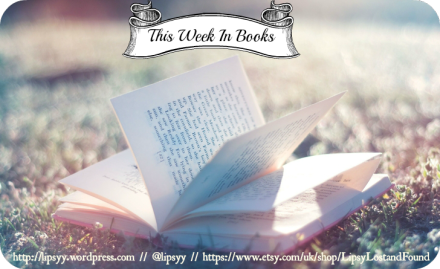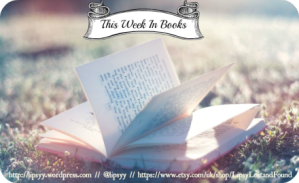
Happy Easter Sunday to you all, I do hope you’re enjoying plenty of chocolate!

I’m using the long weekend to get a bit more reading squeezed in after the distractions of recent weeks.
This Week on the Blog
My week started with my review of A Trick to Time by Kit de Waal, a touching, yet never mawkish. This tale of a doll-maker in Birmingham was brim-full of wonderful characters.
On Tuesday I was on the blog tour for Twin Truths by Shelan Rodger, my post included a piece by the author about our fascination with twins as well as my review for this surprisingly deep book.
This Week in Books really highlighted my aim to read the remaining books on my shelf to be published on Thursday 5 April 2018 featuring Claire McGowan, Vicky Newham and Liz Nugent.
My next review was for a book with letters written to a magazine agony aunt in 1943 – Dear Mrs Bird by AJ Pearce was historical fiction with a difference.
Our House by Louise Candlish received the full five stars in my review. I was amazed at the ease I was drawn into Fiona’s life told via a podcast in which she explains how her house was sold from under her feet. Brilliant!
I returned to crime fiction for my final review of the week. I have followed Claire McGowan’s Paula Maguire series set on the border between Northern and Southern Ireland from the start, and in The Killing House we were treated to the brilliant conclusion to the story arc.
This Time Last Year…
I was reading A Time for Silence by Thorne Moore which is mainly set in Pembrokeshire, Wales. When Lorna finds the farmhouse that her grandparents lived in at the time of World War II, she is shocked to discover that her grandfather had been killed by person, or persons unknown. To distract herself from the grief at the loss of a close friend she decides to find out all she can, but perhaps it would have been better never to have known? This is a book that so accurately evokes a time eloquently capturing the unwritten rules that governed generations which from a contemporary point of view are almost impossible to comprehend. Sarah has no such compunction eager to knock down the walls of silence that have covered up the wrongful death of John and changed the course of the family as they moved away from Pembrokeshire.
You can read my full review here, or click on the book cover.

Blurb
When Sarah, struggling to get over tragedy, stumbles across her grandparents’ ruined farm, it feels as if the house has been waiting for her. She is drawn to their apparently idyllic way of life and starts to look into her family history. Only to learn that her grandfather, Jack, was murdered.
Why has nobody told her? Sarah becomes obsessed with finding out what happened to Gwen and Jack. But are there some family stories that should never be told? Amazon
Stacking the Shelves
Well last week I confirmed that I had spent my three book tokens gained from reading ten books this year from my own shelves and here’s what I bought.
I have Famous Trials I and II by Harry Hodge in their smart green penguin jackets which I bought from World of Books – expect to see more of these creeping onto my bookshelf.

Blurb
Descriptions of four famous murder trials that took place in Great Britain and were famous in their day: Madeleine Smith, whose innocence or guilt has never been solved; Oscar Slater, who was first declared guilty and later proved innocent, with the help of famous figures such as Sir Arthur Conan Doyle; Hawley Harvey Crippen, a seemingly mild-mannered man who murdered his wife and brutally destroyed her body; and William Palmer, a man from a respectable Victorian family with a taste for the racetrack and murder.
The facts of the four cases and their trials can be found in other places; the pleasure of this little book is in the elegant prose used to retell those facts. Goodreads

Blurb
The four trials recorded in this book are particularly compelling, partly because of the wealth of forensic skills they demonstrate and partly because of the successful piecing together of scanty evidence.
Herbert Armstrong’s generosity with arsenic aroused suspicion as to the true cause of his wife’s death. Field and Gray were two bumbling, inept murderers who failed even to receive the mercy the jury requested. George Smith invented numerous identities and married, deserted or murdered for money, while Ronald True was mentally deranged besides being dangerous and greedy. Goodreads
I also treated myself to a copy of Mrs Woolf and the Servants: The Hidden Heart of Domestic Service by Alison Light after being so impressed with her research into her own family tree and the resultant book Common People.

Blurb
Loathing, anger, shame – and deep affection: Virginia Woolf’s relationship with her servants was central to her life. Like thousands of her fellow Britons she relied on live-in domestics for the most intimate of daily tasks. Her cook and parlour maid relieved her of the burden of housework and without them she might never have become a writer. But unlike many of her contemporaries Virginia Woolf was frequently tormented by her dependence on servants. Uniquely, she explored her violent, often vicious, feelings in her diaries, novels and essays. What, the reader might well wonder, was it like for the servants to live with a mistress who so hated giving her orders, and who could be generous and hostile by turns?
Through the prism of the writer’s life and work, Alison Light explores the volatile, emotional territory which is the hidden history of domestic service. Compared to most employers in Britain between the wars, Leonard and Virginia Woolf were free and easy. Life in the Bloomsbury circle of writers and artists was often fun. Yet despite being liberal in outlook, these were also households where the differences in upbringing and education were acute: employers and servants were still ‘us’ and ‘them’. The women who worked for the Woolfs, like other domestic servants, have usually been relegated to the margins of history, yet unearthing their lives reveals fascinating stories: of Sophie Farrell, the Victorian cook and ‘family treasure’, who ended her days in a London bed-sit; Lottie Hope, the parlour maid, a foundling, who’d been left on a doorstep like a parcel; and Nellie Boxall, the Woolfs’ cook, who was finally dismissed after sixteen years of rows and reconciliations, only to find herself a more glamorous job.
Mrs Woolf and the Servants is a riveting and highly original study of one of Britain’s greatest literary modernists. Ultimately, though, it is also a moving and eloquent testimony to the ways in which individual creativity always needs the support of others. Amazo
From NetGalley, which I need to give up until next Lent, I have been approved to read a copy of The Peacock Summer by Hannah Richell, with one of the most stunning of covers. But it wasn’t only the cover that drew me in, I adored this author’s book The Shadow Year as well as her previous book The Secrets of the Tides. The Peacock Summer will be published on 28 June 2018.

Blurb
If she could reach back through the years and warn the person she once was, what would she say? … What would she say to the ghosts who now inhabit her days? So many of those she has loved are now nothing but dust and memory.’
At twenty-six, Lillian feels trapped by life. Her marriage to Charles Oberon has not turned out the way she expected it would. To her it seems she is just another object captured within the walls of Cloudesley, her husband’s beautiful manor house tucked away high in the Chiltern Hills. But, with a young step-son and a sister to care for, Lillian accepts there is no way out for her. Then Charles makes an arrangement with an enigmatic artist visiting their home and his presence will unbalance everything she thought she knew and understood.
Maggie Oberon ran from the hurt and resentment she caused. Half a world away, in Australia, it was easier to forget, to pretend she didn’t care. But when her elderly grandmother, Lillian, falls ill she must head back to Cloudesley. Forced to face her past, Maggie fights to hold herself and her family’s legacy together as she learns that all she thought was real, all that she held so close, was never as it seemed.
Two summers, decades apart.
Two women whose lives are forever entwined.
And a house that holds the dark secrets that could free them both. Amazon
What have you found to read this week?

Since my last post I have read 3 books and since I have gained 4 so my TBR has risen to a total of 188
Physical Books – 113
Kindle Books – 54
NetGalley Books –21
I have banked absolutely no book tokens this week and spent 3 so I’m just 1/3 books in credit!




















